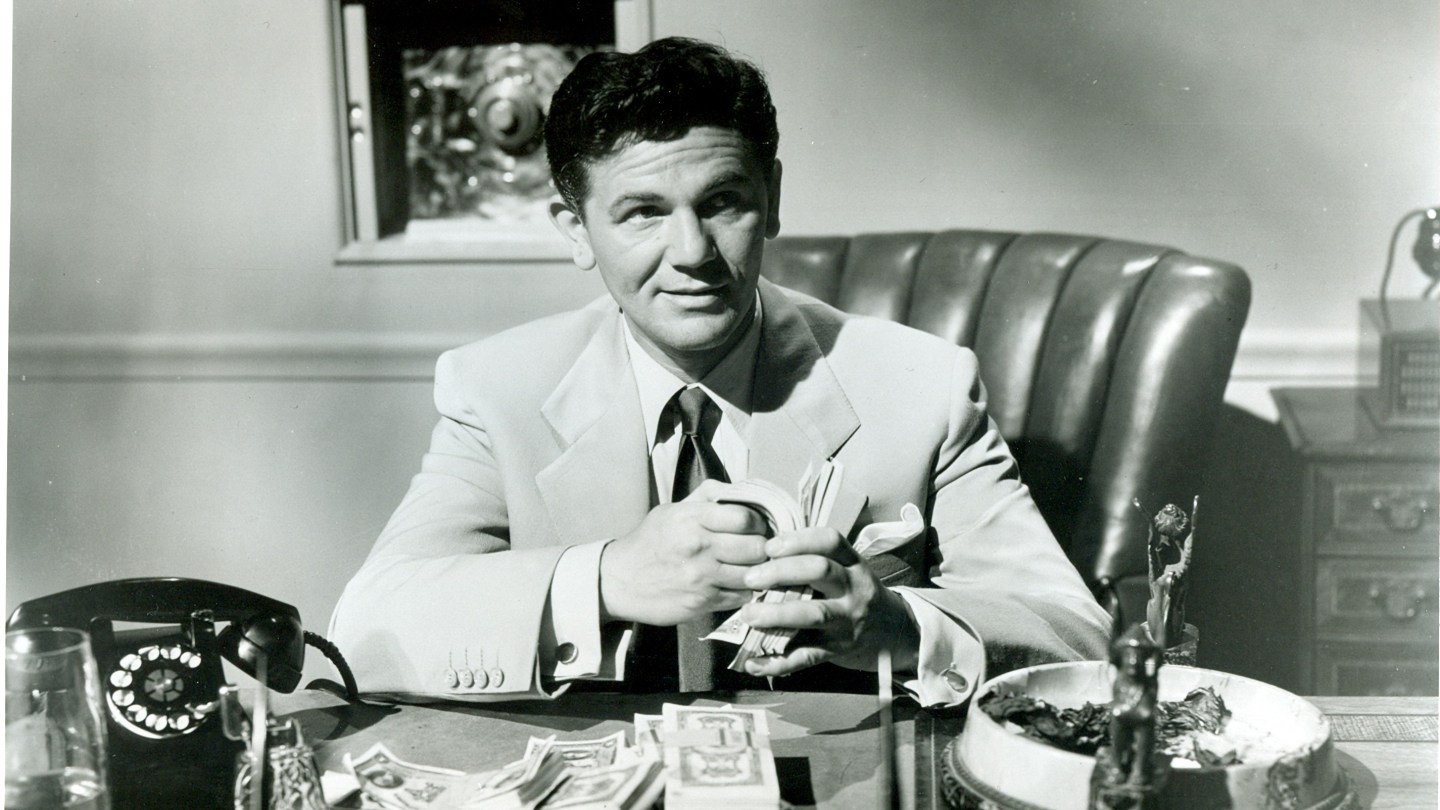The Karlovy Vary International Film Festival (KVIFF) will pay tribute to Hollywood star and method acting pioneer John Garfield (The Postman Always Rings Twice), who made a name for himself by playing brooding working-class characters in the 1940s, with a retrospective of his works this year, organizers unveiled on Wednesday.
“We are excited to remember the exceptional but somewhat forgotten career of a pioneer of what, in his day, was an unusually realistic approach to acting by showing 10 titles,” said Karel Och, who has been serving as the artistic director of the Czech festival since 2010 and who curated the retrospective.
Born in March 1913 as Julius “Julie” Garfinkle, he was “one of the first to captivate film and theater audiences with the acting style later known as method acting,” KVIFF noted. “As an intuitive co-creator of the techniques championed by the legendary Actor’s Studio, he influenced icons such as Marlon Brando, James Dean and Paul Newman, among dozens of others.”
No fewer than eight of the classic titles will be screened using 35mm prints, according to the fest.
“The nearly quarter-century acting career of this unique acting legend was influenced by the political situation in the United States at the time,” KVIFF organizers highlighted. “Garfield first appeared on stage literally on the eve of Black Thursday and the subsequent crash of the New York Stock Exchange in October 1929. His powerful portrayal of the characters he played both in theater (American Laboratory Theatre, Group Theatre) and later in film grew from his strong social sense and intense personal experience of life on the margins of society.”

‘Body and Soul’
Courtesy of Ignite Films Distribution Services
His debut feature film performance in Michael Curtiz’s Four Daughters in 1938 earned the actor an Oscar nomination.
“In crime films with a socially conscious subplot about young people’s painful search for their place in Depression-era society, Garfield fully developed his natural ability to express an uncommon level of authenticity and truthfulness in any activity,” the fest noted. “In late 1941, the United States entered World War II, and the 28-year-old Garfield’s bid to join the army was rejected because of a weak heart.”
Seeking greater creative control as his contract with Warner came to an end, Garfield co-founded production company Roberts Productions. In the process, he earned his second Oscar nomination for the drama Body and Soul (1947), which “to this day is considered one of the greatest boxing films, with a clear influence on cult pictures such as Rocky and Pulp Fiction,” the KVIFF highlighted.
But his career took a downturn when he was called to testify before the U.S. House of Representatives’ Committee on Un-American Activities (HUAC) that looked into allegations of Communist ties and activities by people in Hollywood and beyond.
“The accusations had a fatal box office impact on one of his final films, The Breaking Point (1950), an adaptation of Ernest Hemingway’s adventure novel To Have and Have Not, which the author himself considered the best film adaptation of any of his books,” according to the KVIFF. “Unlike others who collaborated with the authorities and denounced their colleagues in order to protect their own skins, the exhausted Garfield, already suffering poor health, did not ‘name names’.”
Garfield died on May 21 of 1952, at the age of 39, from a heart attack.
The fest in the Czech spa town has earned a reputation as one of the biggest summer celebrations of film in Central Europe, putting the spotlight on new releases from the region and far beyond, along with highlights of the film festival circuit from the past year.

John Garfield in ‘The Breaking Point’
Courtesy of UCLA Film & Television Archive
The 59th edition of the KVIFF takes place July 4-12.
Check out the full list of the movies screening in its John Garfield tribute below.
Four Daughters (director Michael Curtiz, 1938)
They Made Me a Criminal ( Busby Berkeley, 1939)
Dust Be My Destiny (Lewis Seiler, 1939)
Pride of the Marines (Delmer Daves, 1945)
The Postman Always Rings Twice (Tay Garnett, 1946)
Humoresque (Jean Negulesco, 1946)
Body and Soul (Robert Rossen, 1947)
Force of Evil (Abraham Polonsky, 1948)
The Breaking Point (Michael Curtiz, 1950)
He Ran All the Way (John Berry, 1951)
